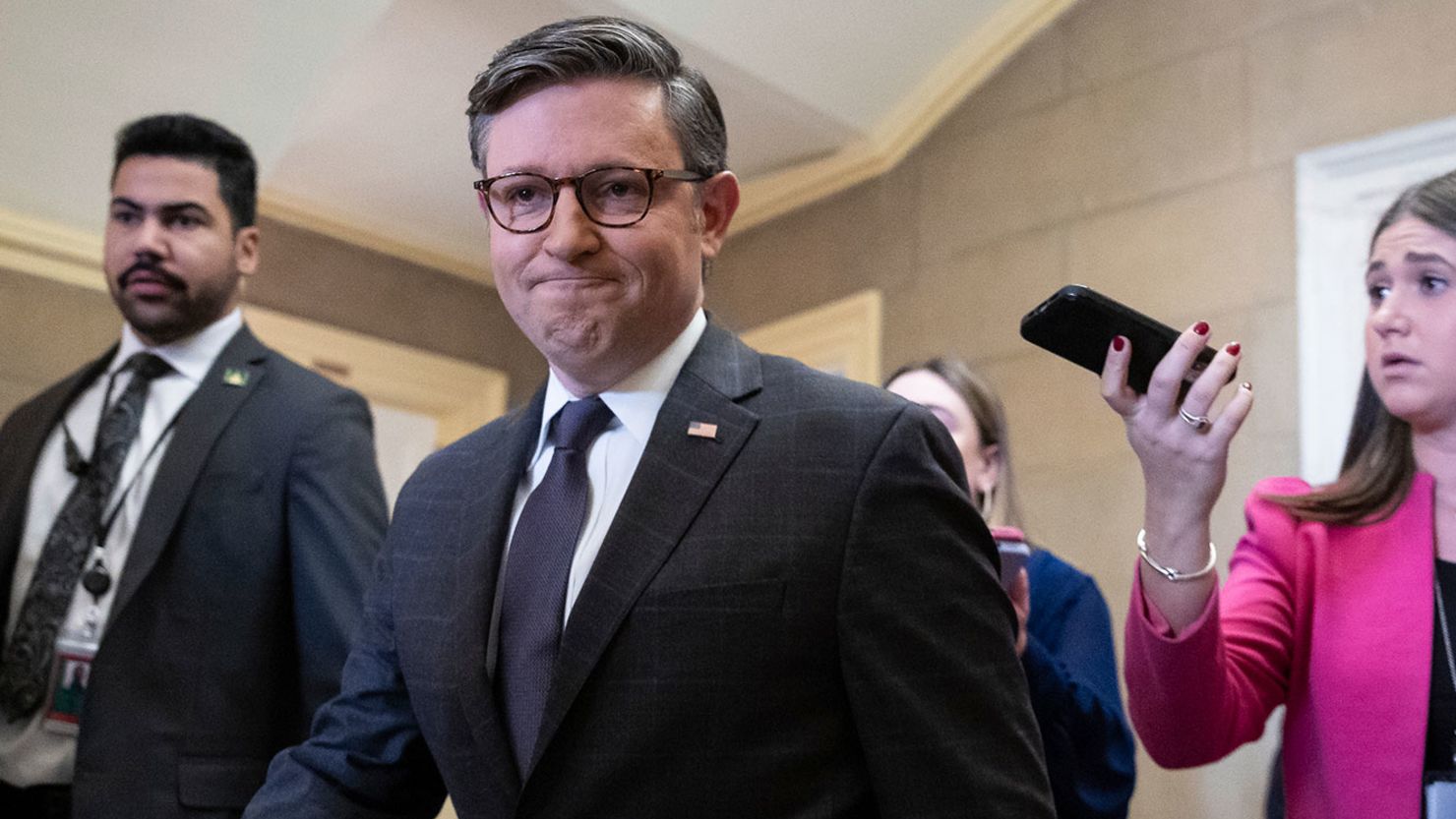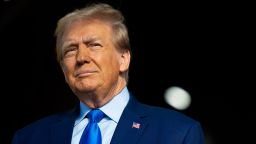Editor’s Note: John Avlon is a CNN senior political analyst and anchor. He is the author of “Lincoln and the Fight for Peace.” The views expressed in this commentary are his own. View more opinion at CNN.
As America plays chicken with another government shutdown, Moody’s Investors Service, the credit rating agency, warned that it is changing its outlook on the US rating from stable to negative.
This might sound like Wall Street mumbo-jumbo, but it is a real-world reminder that hyper-partisan polarization has a concrete cost.
In addition to the growth of deficits and debt, House Republican partisan brinksmanship has been a driving force behind every credit warning and downgrade the US has received over the past several years — and as a testament to their own absurdity, they’ve supposedly done this in the name of fiscal responsibility.
It was in 2011, in the face of another dance around government shutdowns and debt ceiling default, that America had its first credit rating downgrade from Standard and Poor’s.
The 2010 Tea Party wave in reaction to former President Barack Obama’s election was in full effect. At the time, it was purporting to represent a desire to reduce taxes and decrease deficit spending in the wake of the US fiscal crisis.
Resurgent right-wingers demanded deep cuts in spending in exchange for raising the debt ceiling. The weeks of partisan brinksmanship — and apparent willingness to crash US credit to achieve ideological aims — rattled confidence in American governance.
That’s why S&P called out the fundamental structural problem of hyper-partisan politics, as well as the growing deficit and debt, saying: “The political brinksmanship of recent months highlights what we see as America’s governance and policymaking becoming less stable, less effective, and less predictable than what we previously believed. The statutory debt ceiling and the threat of default have become political bargaining chips in the debate over fiscal policy.”
As Republican Senate Minority Leader Mitch McConnell said at the time: “I think some of our members may have thought the default issue was a hostage you might take a chance at shooting. Most of us didn’t think that. What we did learn is this — it’s a hostage that’s worth ransoming.”
If S&P was premature in its downgrading of the US in 2011, a decade later, its stance has proven prescient. Our debt has continued to rise — fueled by Republican as well as Democratic presidents. But the structural instability of our governing has increased with the continued right-wing lurch of the Republican Party, which demonizes the idea of working across the aisle.
Forget the argument that House Republicans are motivated by a noble concern about the deficit and debt. Even if you agree with the substance of the argument that we are spending our children’s inheritance, real fiscal responsibility means that we should have revenue that meets our expenses. It’s a two-way street.
But a modest degree of debt has been used usefully by the US since the days of Alexander Hamilton, who wrote: “A national debt if it is not excessive will be to us a national blessing.” And when the US climbed out of its deficits as a result of growth under former Democratic President Bill Clinton, the first thing Republicans did under former President George W. Bush was squander that by cutting taxes, leading to another cycle of deficit spending.
Not only that, when Republican presidents have been in office, they have grown the national debt more than the Democrats.
That’s particularly true of former President Donald Trump, who increased the debt by more than $7 trillion in four years — something former South Carolina Gov. Nikki Haley has correctly been trying to make a campaign issue in the Republican presidential primary.
But the congressional voting record shows that Republicans really only care about deficits and debt when a Democrat is president. That’s when they threaten shutdowns to achieve policy aims and play politics with the full faith and credit of the United States.
We saw that this August when Fitch Ratings lowered the credit rating of the United States from AAA, saying: “The repeated debt-limit political standoffs and last-minute resolutions have eroded confidence in fiscal management.”
One of the few responsible things that former House Speaker Kevin McCarthy did was form a deal with Democrats to stop the government from shutting down. It cost him his speakership.
Now Speaker Mike Johnson is trying to wriggle out of the same trap. We’ll see if he’s successful. Some people in his caucus are cheering for a shutdown because they feel that will give them leverage to push through their own ideological agenda absent durable majorities in the House and Senate.
The people making the most noise now were the most unquestioning followers of Trump and would be again if the self-styled “king of debt” were to regain the presidency.
The inmates-running-the-asylum dynamic already has had an impact, as we’ve seen with Moody’s. And the concern is not just the size and scope of the US debt — it’s whether the United States has the stable structural governance in order to make good on its debts. That’s why Moody’s called out partisan polarization, saying: “Continued political polarization within U.S. Congress raises the risk that successive governments will not be able to reach consensus on a fiscal plan to slow the decline in debt affordability.”
Get Our Free Weekly Newsletter
- Sign up for CNN Opinion’s newsletter
- Join us on Twitter and Facebook
If you sincerely care about fiscal responsibility — reducing deficits and debt — work in a bipartisan way to reduce long-term costs and raise revenue. The worst kind of stunt politics is to try to offset emergency spending like aid to Israel by trying to cut funding for IRS enforcement — as Johnson initially proposed — which would actually add to the deficit, according to the nonpartisan Congressional Budget Office.
There are good people in both parties who care about the long-term deficit and debt of our nation. But the self-defeating stunt politics — and rank hypocrisy of the far right — have made it almost impossible to reason together, especially across party lines. But that’s the way the government is supposed to work, by design, in a democratic republic.
The failure to reason together and the weakening of our credit rating only deepens the hole we are in, while the dysfunction of our democracy is a gift for the autocrats who want to remake the 21st century in their model.






